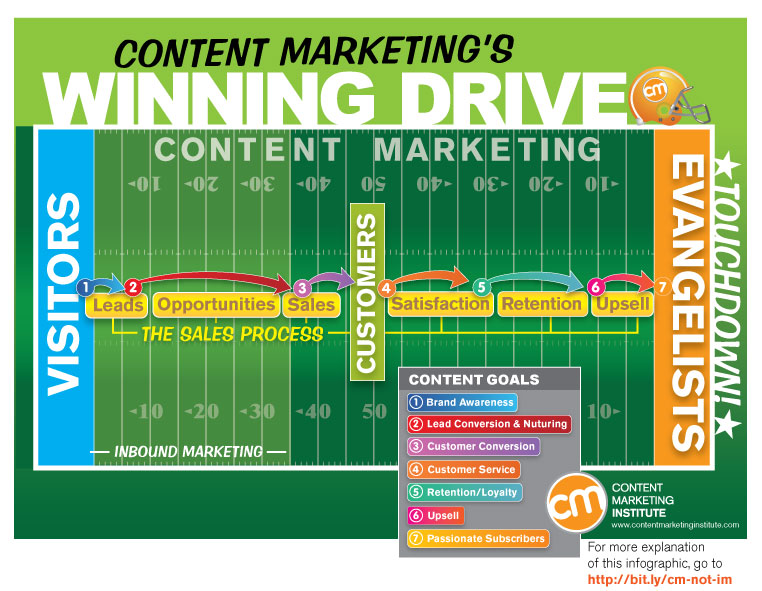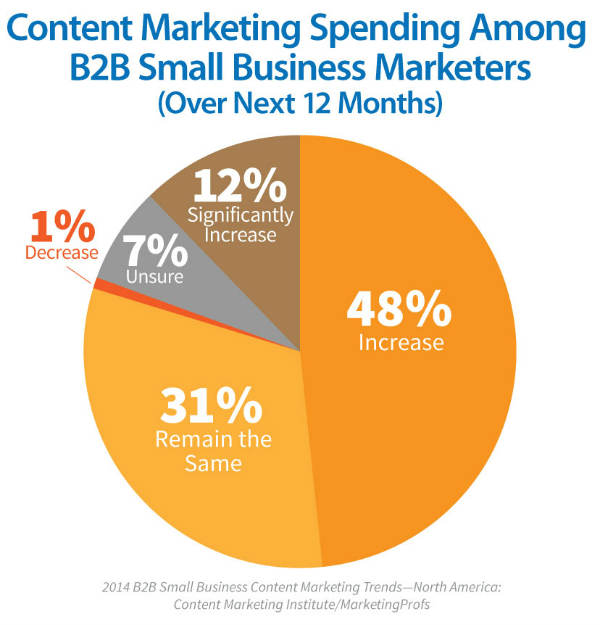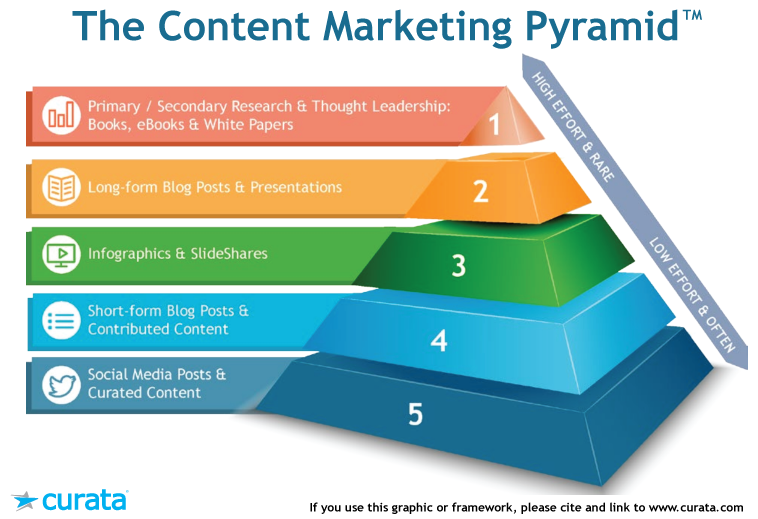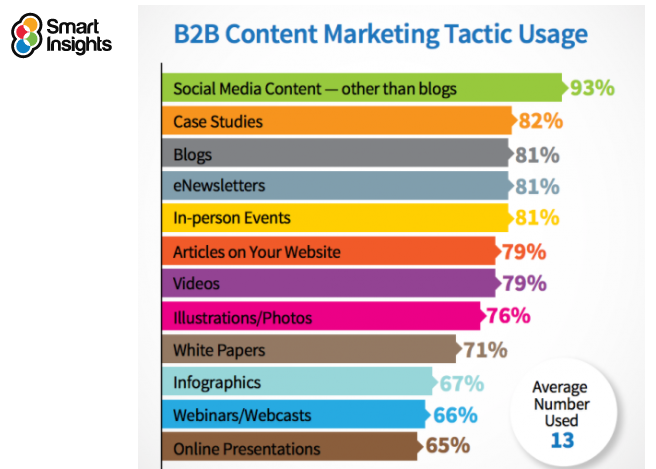Create Your Superb SMB Content Marketing Plan
Content is King. Distribution is Queen
Even Groucho knew we all need a plan. And by now, we all know marketing is content marketing. So how do we come up with a plan to create the right content and get it distributed to the right audience? That’s what this post covers. Grab yourself a cigar, put on your Groucho glasses and let’s get started.
While I’m hardly the world authority on content marketing strategy, this post might help you dive into your own first content marketing campaign. It’s all about attitude. Attitude gives you the guts to take on this content marketing challenge and see it through.
No one is an expert in this vast process involving content marketing. It’s simply too big, too complex. Keep in mind that this may one of the top reasons why Chief Marketing Executives (CMOs) are dropping off like flies. They’re stressed out of their minds trying to stay competitive. The likely reason is that they’re trying to be competitive, which is all the rage, when the correct goal should be unique branding, targeted reach, and building engagement.
It’s said that only losers compete. Nevertheless, here’s a simplified game plan view that can help you do content marketing like a pro.
 Graphic Courtesy of Content Marketing Institute
Graphic Courtesy of Content Marketing Institute
And for us SMB people, the challenge is more demanding and complex, mostly because (LOL) we’re expected to have campaigns that rival the big companies. From Google rankings, to subscriptions, to podcasts and webinars, to downloadable ebooks, infographics, and multimedia email campaigns, the big firms will offer an entirely different experience. Money speaks.
Keep your expectations appropriate and you won’t give up.
 Graphic Courtesy of Content Marketing Institute
Graphic Courtesy of Content Marketing Institute
See additional posts on digital marketing solutions, choosing a marketing consultant , audience engagement tips , content personalization solutions and marketing AI solutions, and capturing best B2B clients.
Let’s Keep it Real and Human
If you can afford it, use a marketing automation solution to organize and automate the timely delivery of your content and messaging within your customer conversion funnel. But that’s just the technical side of things. Software won’t supercharge your content marketing. It may even prevent you from visualizing and organizing a content marketing strategy that works, and make you look insincere and impersonal thus erode your customer loyalty.
I’ve seen plenty of slick content marketing campaigns that delivered little of value, thus crushing any chance I would take them seriously or buy from them. From persistent emails to shady videos, they sabotaged themselves. They did have the content marketing process down pat, but the unique value delivered was poor.
These marketing automation systems are so common now with a built-in untrustworthy feel to them. Your plan should have a more emotionally sensitive and pleasant feel to it, and definitely have the right value for the right audience.
And here’s food for thought — amateurish can come across as genuine and trustworthy.
In a similar vein, sometimes you need to formulate your plan and strategy with pen and paper and not with software. It’s like writing posts on a laptop and discovering your copy isn’t hitting a resonant tone. You can’t get the feel for good copy on a screen. We need to print it out, read it, edit it, restructure it, and then read it again on a tablet device and a smartphone to get our content right. Good old handwriting gives you an emotional feel for what you’re planning.
Small Business and Giant Enterprises Have Different Content Marketing Needs
While your SMB plan can use automated messaging just like big multi-national corporations do, it might be overkill and get in the way. It’s better to simplify. You may want to begin with a digital marketing audit which can help you crystalize your goals and process.
With the digital marketing assessment complete, you can begin filling out your plan. You can get content marketing templates online from endless solution providers. Head over to Contentmarketinginstitute.com and you’ll find plenty of them.
Within the content marketing process, there are simple overall goals:
- what is your business and content market goal? – to gain reach, increase sales by 20%, to leverage big publishers, to fortify your Google rankings, to increase social shares. It’s tough to be specific in small business, but think about some definite, specific numbers because stats show that those who have no specific goals tend to flounder.
- who is your target audience? – who specifically are you targeting and what is their urgent need? Create your buyer persona, detailing their use of your service and product and what they typically look for in a provider/solution.
- what unique value do you have to share with prospects and customers? Info, entertainment, incentives, product features/benefits, promise of satisfaction
- who will do research and create your content? Strategist, copywriter, videographer, web designer, graphic designer. – what content will you create to fulfill your objectives? Pdfs, blogs, downloadbles, podcasts, videos, photos, illustrations, slide shows, data charts.
- which content will you use at critical points in the customer journey? sell sheets, free guides, video, subscription forms, ebooks, freebies or discounts on volume purchase.
- how will you send visitors through your conversion funnel? How will you attract, build their initial intent, make impact, engage, convince, reassure, and commit to purchase? – deep long copy content, product data, social proof, authority recommendation, testimonials, time-limited offers.
- what will your key performance indicators be? – engagement, social shares, content shares, email shares, subscriptions, sales, phone calls
 Graphic courtesy of Curata
Graphic courtesy of Curata  Graphic Courtesy of SmartInsights.com
Graphic Courtesy of SmartInsights.com
Imperfect Means You Get to Learn!
Does your content marketing plan have to be perfect and professional right off the bat? – The answer is NO. In fact, only by missing the mark and constantly revising and improving, will you learn. If it was perfect, you wouldn’t have a clue why. That’s not good for future campaign performance.
Part of the value in doing this is how much you’re going to learn about your target audience, which content works, and future prospecting, and support your face to face selling.
The amount of learning you’ll enjoy from your content marketing plan is vast. Don’t worry about being sloppy in planning. Everyone has gaps. The point is to be persistent in finding those gaps and learning.
The best way is to get your basic plan established and clearly understood. Then get a digital marketing agency to create the digital collateral. They may give you some feedback on content quality and be able to produce some great stuff. However, expect it to be expensive.
Inevitably, you’ll want to work with a good conversion rate specialist to help you identify what works best. A CRO expert is focused on transactions, or making the most of your content’s impact, not necessarily building your brand or Google rankings. The point of all your work is to create a conversion transaction and hopefully build clients or sales.
The automated marketing software will help you with lead scoring, analytics, and multi-channel coordination.
You need small business solutions. Whole different universe. Good luck with your content marketing plan and strategic execution.
Learn more about AI marketing and how your company can make your content marketing even better.
